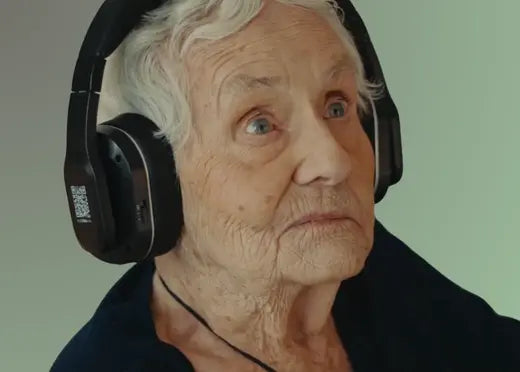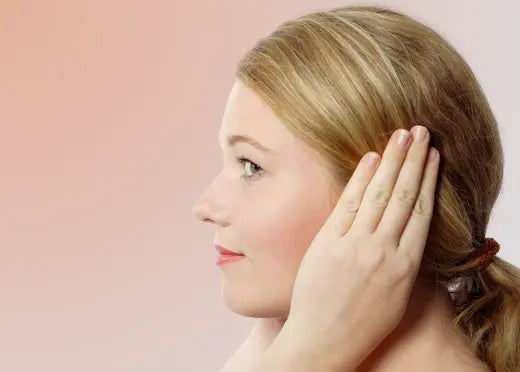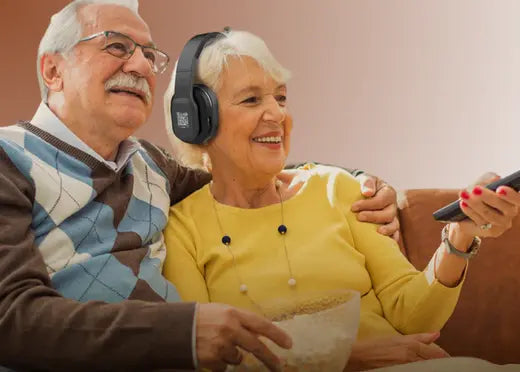Our guide to choosing the best headphones for the hearing impaired in 2025, including an analysis of the most suitable technologies to enhance your listening experience.
The specific needs of people with hearing loss
Hearing challenges encountered on a daily basis
People with hearing loss face complex listening situations, particularly in noisy environments or during multi-person conversations. Speech intelligibility is becoming a major issue.
Types of hearing loss and their implications
Hearing loss can be mild, moderate, or severe, conductive or sensorineural. Each requires a specific audio strategy: volume, sound processing, and filtering.
Problematic sound environments
Public places, transportation, restaurants, and even the home can become areas of noise stress. Good headphones for the hearing impaired must address this variety of contexts.
Clarity and volume requirements
It's not just about amplification: the sound must be clear, without distortion, and personalized according to the user's residual hearing abilities.
Technologies adapted for the hearing impaired
Targeted frequency amplification
Some headphones incorporate filters to reinforce vocal frequencies while avoiding saturation of ambient sounds.
Noise reduction and sound insulation
Active or passive cancellation of ambient noise allows better focusing on the voice or useful sound signal.
Wireless connectivity and compatible standards
Bluetooth, 3.5 mm jack, TV, smartphone or hearing aid compatibility: a good headset for the hearing impaired must be easy to connect.
Sound Controls and Customization
The adapted settings (volume, vocal pre-emphasis, left/right balance) allow for a tailor-made sound experience.
The different types of headphones for the hearing impaired
Wired vs. Wireless Headphones: Comparing Advantages
Wired models offer direct transmission without latency, while wireless headsets provide superior freedom of movement.
Over-ear vs. on-ear vs. in-ear headphones
Each format has its advantages depending on the degree of comfort, isolation, and portability. Circumaurals are often preferred for hearing loss.
Dedicated TV headsets and their specific features
TV headphones often offer long-range wireless transmission, left-right balance, and independent volume control.
Multi-purpose vs. specialized solutions
Some headsets are designed to be used for both music, calls, and TV, while others are targeted for a single use (TV, conversation, etc.).
Essential criteria for making your choice
Sound quality and frequency spectrum
A good headset for the hearing impaired should prioritize sound precision, especially in the mid and high frequencies associated with speech.
Comfort and ergonomics for prolonged use
Weight, materials, hoop pressure: everything counts when you wear a helmet for several hours a day.
Battery life and charging for wireless models
Some models offer up to 30 hours of battery life, with fast charging. A key criterion for hassle-free daily use.
Compatibility with existing hearing aids
A headset for the hearing impaired must be able to be used over or in addition to existing equipment, without interference or loss of quality.
Spokeo: the new generation of headphones for the hearing impaired
For those looking for a simple, effective, and uncompromising headset for the hearing impaired , Spokeo offers a solution that combines the most innovative technologies and user comfort.
Adaptive sound processing technology
Spokeo picks up only the speaker's voice using a smart wireless microphone and transmits clear sound via bi-conductor technology (air + bone).
Two complementary modes: conversation & Bluetooth
Spokeo has a Conversation mode for face-to-face exchanges, but also a Bluetooth mode to connect to the television, smartphone or tablet and enjoy high-quality sound in all situations.
Ease of use
The helmet can be put on in a single movement, without any adjustment or fine manipulation. It is suitable for the elderly or those with reduced mobility.
Sound quality
Thanks to its adaptive signal processing, Spokeo offers clear speech reproduction, even in noisy environments.
Versatility of use
Usable at home, in medical consultations, or simply for watching TV, Spokeo meets the real needs of the hearing impaired... and those who speak to them too.













